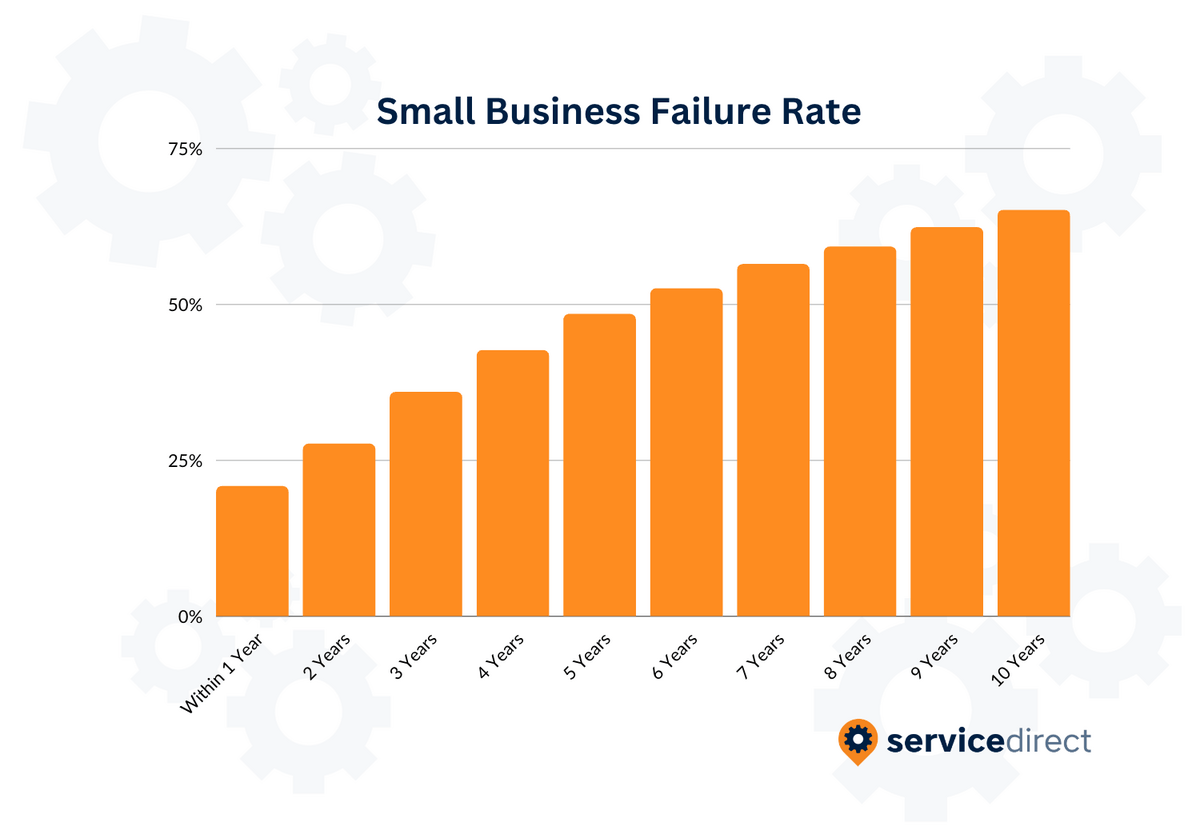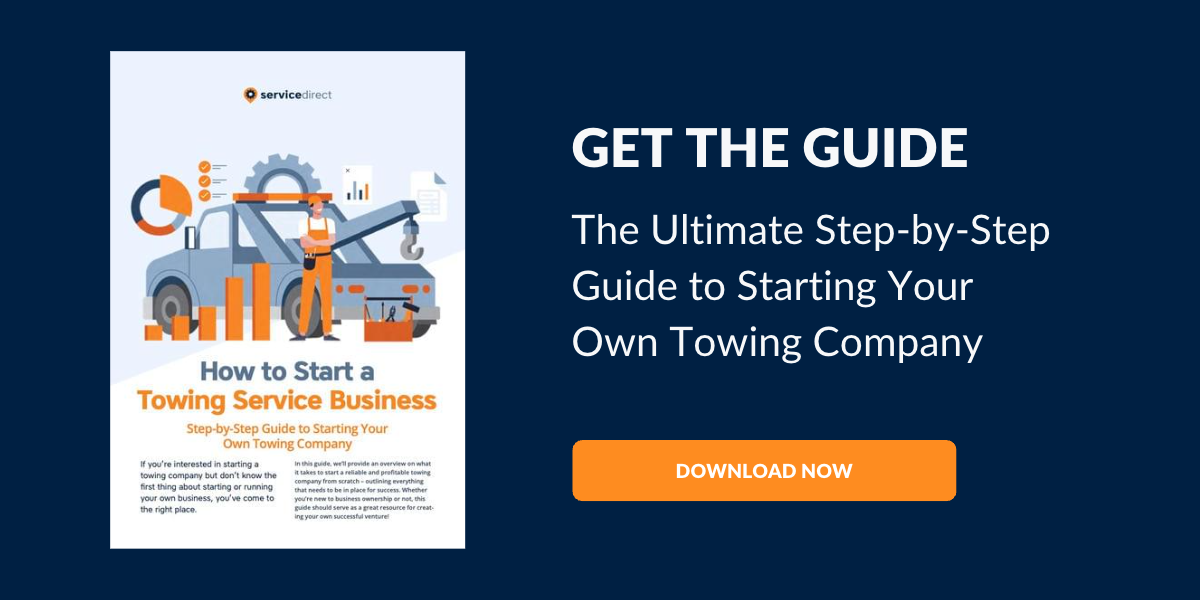How to Start a Tow Truck Business
A tow truck business is a service-oriented business that provides roadside assistance, vehicle towing, and other related services to drivers. While it may seem like all you need is a truck, some experience, and determination to get started, in reality, this industry is highly competitive and requires careful planning and execution to succeed.
Starting a tow truck business the right way will be crucial to your long-term success. There are several factors to consider, such as licensing requirements, startup costs, marketing strategies, and revenue generation methods.
This article aims to help you understand what goes into starting a tow truck business and important questions you should consider before jumping in. Whether you are an aspiring entrepreneur or an established business owner looking to expand your services, this article will provide valuable insights into the tow truck industry.
Is Owning a Tow Truck Business Profitable?
Before you get started, it’s worth asking how much money you can make with your own tow truck business. According to the Bureau of Labor Statistics, the median annual salary for heavy and tractor-trailer truck drivers, a grouping of occupations that includes tow truck drivers, is about $49,920. However, it’s important to remember that this data only takes into account employees who work for other people. As the owner of your own business, you can potentially take home much more, depending on how profitable the business is overall.
Owning and operating a towing company can be a great way to earn a living as your own boss, but overall profitability will depend on things like location, competition, and services offered.
The most important of these factors to consider is competition. If there are too many tow truck companies in a given location, it can be challenging to gain a significant market share, and more established businesses may be able to offer lower prices. However, in less competitive areas, there may be more opportunities to establish a successful tow truck business.
Effectively managing your costs is another important factor in the profitability of your tow truck business. This means optimizing routes, maintaining vehicles to prevent breakdowns and accidents, and implementing efficient dispatch and billing systems.
How to Make Money with a Tow Truck
Offering additional services can be a great way to expand your business and improve profitability. There are several types of services your towing business can offer, including:
- Emergency Towing: This involves providing immediate assistance to stranded motorists who need their vehicles towed to a repair shop or their home. This is the most common service offered by tow truck companies and is a reliable source of revenue. Having well-maintained hydraulic equipment can ensure smooth and efficient towing operations.
- Roadside Assistance: In addition to towing services, tow truck businesses can offer roadside assistance to help motorists with minor repairs or flat tire changes. This can be a valuable source of revenue as it can help to attract more customers.
- Impound Services: Providing impound services to law enforcement agencies and private property owners is another way to generate revenue. This involves removing illegally parked or abandoned vehicles and storing them until the owner can claim them.
- Long-Distance Towing: This service involves transporting vehicles over long distances, often across state lines. Long-distance towing can be lucrative, but it requires specialized equipment and trained drivers.
Each method has its own benefits and drawbacks. Emergency towing and roadside assistance are the most common and reliable sources of revenue, but they require a significant investment in equipment and personnel. Impound services can be profitable, but they require strict adherence to regulations and a secure storage facility. Long-distance towing can be lucrative, but it requires specialized equipment and training.
To optimize revenue generation in a tow truck business, it's essential to offer a range of services to attract a wider customer base. Additionally, offering competitive pricing and providing exceptional customer service can help to build a loyal customer base and generate repeat business. Finally, regularly assessing the profitability of each service and making adjustments as necessary can help to ensure the long-term success of the business.
Licensing Requirements for Starting a Tow Truck Business in Your State
If you're interested in starting a tow truck business, it's important to research the licensing requirements for your specific state. Each state has its own licensing requirements and regulations for operating a tow truck business.
To learn about the licensing requirements in your state, you can start by contacting the state's Department of Transportation or Department of Motor Vehicles. These agencies are typically responsible for regulating and licensing tow truck businesses.
The specific licenses and permits needed for a tow truck business vary depending on the state and the services offered. However, here are some of the most common licenses and permits required:
| Business License | This license is required for all businesses operating in the state. |
| Tow Truck Business License | This license is required for businesses that provide towing services for compensation. |
| Tow Truck Operator License | This license is required for individuals who operate tow trucks. Each driver must have a valid driver's license and complete a tow truck driver training program in order to obtain this license. |
| Tow Truck Permit | This permit is required for each tow truck used by your business. Unlike licenses, this permit is tied to the truck itself. |
| Motor Carrier Permit | This permit is required for businesses that transport vehicles for hire. |
To obtain these licenses and permits, applicants must meet specific requirements and complete an application process that includes background checks, vehicle inspections, and proof of insurance. It's important to note that the requirements and fees for each license and permit vary depending on the type of service provided and the location of the business.
To ensure a smooth and successful licensing process, be sure to research and understand the specific requirements for each license and permit, seek guidance from a professional consultant or attorney, and maintain compliance with all regulations and laws.
Getting your licenses and permits is an exciting and critical step in starting a tow truck business. With these official documents in hand, you can get started building your operation!
Common Mistakes to Avoid When Starting a Towing Business
It’s no secret that starting a business can be a big risk. According to the Bureau of Labor Statistics, about 20% of small businesses fail in their first year, 28% fail by their second year, and nearly 50% fail after five years in business.
In order to avoid becoming one of these statistics, it's important to understand how and why small businesses fail. Here are some common mistakes to avoid when starting a towing business:
- Skipping market research: One of the most common – and most costly – mistakes new business founders make is going in blind. Before doing anything else, you need to conduct thorough market research to understand the local industry, competition, and target market. Failing to do so can lead to incorrect assumptions and poor decision-making, and essentially doom your business from the beginning.
- Insufficient capital: Starting a towing business requires significant upfront costs for equipment, insurance, and licensing. It's important to have sufficient capital to cover these expenses and have a plan for managing cash flow. While it’s not uncommon to start a business with help from a small business loan or other forms of financing, it’s critical that you fully understand the terms of your loan and work that into all financial considerations until it’s paid off.
- Inadequate training: Proper training for tow truck operators is crucial for safety, customer satisfaction, and optimal business operations. Each of these represents a potential threat to your company. Failing to provide adequate training can lead to accidents, injuries, damaged vehicles, unhappy customers, regulatory strikes, and lost business.
- Lack of leads: New customers are the lifeblood of any small business, and tow trucks are no exception. Too many towing businesses expect word of mouth or their branded truck will be enough to attract business, when in reality you need a well-rounded, marketing strategy to ensure that the right people are hearing about your company at the right time.
- Poor customer service: Providing exceptional customer service is essential for building a positive reputation and generating repeat business, and it goes beyond simply completing the assigned tasks. Failing to prioritize friendly, empathetic, and helpful customer service can lead to lost customers and even negative reviews, which can scare away future customers too.
Step-by-Step Guide to Start a Tow Truck Business
The information in this article should give you a good idea of what you need to consider before starting a tow truck business. But once you've decided on it, how do you actually go about creating and running a business?
Here are 11 important steps to take if you want to start a tow truck business:
- Research the market
- Write out a business plan
- Register your business
- Get your licenses and permits
- Open a business bank account
- Buy or lease your first truck
- Get additional equipment
- Hire a great team
- Create a marketing strategy
- Build industry relationships
- Provide excellent service
Check out our detailed Step-By-Step Guide to Starting a Towing Business for a deeper look at what each of these steps entails.
Conclusion
Owning and operating your own tow truck business is a great way to earn a living, provide a valuable service to your community, and enjoy the freedom of being your own boss. By putting in the work to understand the intricacies of the business, paying attention to your local market conditions, and effectively laying the groundwork, you can position your tow truck business for success.

.png)


